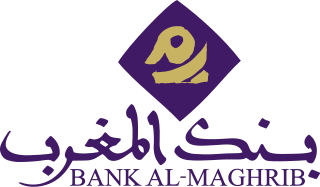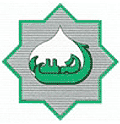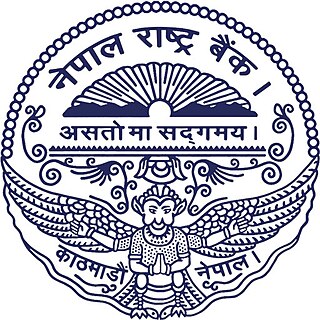
A central bank, reserve bank, national bank, or monetary authority is an institution that manages the currency and monetary policy of a country or monetary union. In contrast to a commercial bank, a central bank possesses a monopoly on increasing the monetary base. Many central banks also have supervisory or regulatory powers to ensure the stability of commercial banks in their jurisdiction, to prevent bank runs, and in some cases also to enforce policies on financial consumer protection and against bank fraud, money laundering, or terrorism financing. Central banks play a crucial role in macroeconomic forecasting, which is essential for guiding monetary policy decisions, especially during times of economic turbulence.

The economy of Bahrain is heavily dependent upon oil and gas. The Bahraini Dinar is the second-highest-valued currency unit in the world. Since the late 20th century, Bahrain has heavily invested in the banking and tourism sectors. The country's capital, Manama is home to many large financial structures. Bahrain's finance industry is very successful. In 2008, Bahrain was named the world's fastest growing financial center by the City of London's Global Financial Centres Index. Bahrain's banking and financial services sector, particularly Islamic banking, have benefited from the regional boom driven by demand for oil. Petroleum is Bahrain's most exported product, accounting for 60% of export receipts, 70% of government revenues, and 11% of GDP. Aluminium is the second most exported product, followed by finance and construction materials.

The Reserve Bank of India, abbreviated as RBI, is India's central bank and regulatory body responsible for regulation of the Indian banking system. Owned by the Ministry of Finance, Government of India, it is responsible for the control, issue and maintaining supply of the Indian rupee. It also manages the country's main payment systems and works to promote its economic development. Bharatiya Reserve Bank Note Mudran (BRBNM) is a specialised division of RBI through which it prints and mints Indian currency notes (INR) in two of its currency printing presses located in Mysore and Salboni. The RBI, along with the Indian Banks' Association, established the National Payments Corporation of India to promote and regulate the payment and settlement systems in India. Deposit Insurance and Credit Guarantee Corporation was established by RBI as one of its specialized division for the purpose of providing insurance of deposits and guaranteeing of credit facilities to all Indian banks.

The Central Bank of Jordan is the central bank of Jordan whose main duties include the release and distribution of the Jordanian currency and the maintenance of a national reserve of gold and foreign currencies. The bank also maintains and insures the safety of the banking environment in Jordan.

The Bangko Sentral ng Pilipinas is the central bank of the Philippines. It was established on January 3, 1949, and then re-established on July 3, 1993 pursuant to the provision of Republic Act 7653 or the New Central Bank Act of 1993 as amended by Republic Act 11211 or the New Central Bank Act of 2019. The principal author was Senator Franklin Drilon. It was signed by President Rodrigo Duterte.

Bangladesh Bank is the central bank of Bangladesh and is a member of the Asian Clearing Union. It is fully owned by the Government of Bangladesh.

The Central Bank of Barbados (CBB) is the national monetary authority and central bank responsible for providing advice to the Government of Barbados on banking and other financial and monetary matters. The Central Bank of Barbados, was established by Act of parliament on 2 May 1972. Prior to the establishment of CBB, Barbados' monetary policies were governed through its membership in the Eastern Caribbean Currency Authority (ECCA). The Central Bank operates as the banknote issuing authority for Barbadian currency.

The Czech National Bank, is the central bank and financial market supervisor in the Czech Republic, headquartered in Prague. It is a member of the European System of Central Banks. It was established on 1 January 1993 from the division of the State Bank of Czechoslovakia as part of the process of dissolution of Czechoslovakia, together with the National Bank of Slovakia.

The Bank Al-Maghrib is the central bank of the Kingdom of Morocco. It was founded in 1959 as the successor to the State Bank of Morocco. In 2008 Bank Al-Maghrib held reserves of foreign currency with an estimated worth of US$36 billion. In addition to currency management, the Bank Al-Maghrib also supervises a number of private banks supplying commercial banking services. The bank is headquartered on Avenue Mohammed V in Rabat; it has a branch in Casablanca and agencies in 18 other cities in Morocco.

The National Assembly is the legislative body of Bahrain. Parliament is bicameral, consisting of the 40 elected members of the Council of Representatives and the 40 royally-appointed members of the Consultative Council. The joint session of the National Assembly is chaired by the Speaker of the Council of Representatives, or by the Speaker of the Consultative Council if the former is absent.

The Central Bank of Armenia is the central bank of Armenia with its headquarters in Yerevan. The CBA is an independent institution responsible for issuing all banknotes and coins in the country, overseeing and regulating the banking sector and keeping the government's currency reserves. The CBA is also the sole owner of the Armenian Mint.
The Central Bank of the United Arab Emirates is the state institution responsible for managing the currency, monetary policy, banking and insurance regulation in the United Arab Emirates.

Dar al-Maal al-Islami Trust, founded in Switzerland in 1981, is a leading Islamic financial institution with affiliates on four continents and assets under management of over US$3.6 billion, operating in accordance with Zakat principles of Islamic banking.

The Arab Monetary Fund (AMF) is a regional Arab organization, a working sub-organization of the Arab League. It was founded 1976, and has been operational since 1977.

The Nepal Rastra Bank was established on April 26, 1956 A.D. under the Nepal Rastra Bank Act, 1955, to discharge the central banking responsibilities including guiding the development of the embryonic domestic financial sector. The NRB is functioning under the new Nepal Rastra Bank Act, 2002. The functions of NRB are to formulate required monetary and foreign exchange policies so as to maintain the stability in market prices, to issue currency notes, to regulate and supervise the banking and financial sector, to develop efficient payment and banking systems among others. The NRB is also the economic advisor to the government of Nepal. As the central bank of Nepal, it is the monetary, supervisory and regulatory body of all the commercial banks. development banks, finance companies and micro-finances institutions.

Khaleeji Commercial Bank changed its name to Khaleeji Bank BSC (Khaleeji) is an Islamic bank, headquartered in the Kingdom of Bahrain, and operating under a Retail Islamic Banking license granted by the Central Bank of Bahrain (CBB). It is a Public Bahraini Shareholding Company listed on the Bahrain Stock Exchange. KHCB offers a range of banking and Investment products and services to high-net-worth individuals, corporate entities, and financial institutions. These include commercial and corporate banking, wealth management, structured investment products and project financing facilities.

The Palestine Monetary Authority is the emerging central bank of Palestine. The PMA, located in Ramallah, was established in 1994 following the signing of the Protocol on Economic Relations between the Palestinians and Israel. It is an independent public institution responsible for the formulation and implementation of monetary and banking policies, to safeguard the banking sector and to ensure the growth of the national economy in a balanced manner.
Sheikh Mohammed bin Khalifa bin Ali Al Khalifa is a Bahraini politician.
Khaled Mohammed Salem Balama Al Tameemi is the current governor of the Central Bank of the United Arab Emirates (CBUAE). He has over 30 years of experience in the fields of banking, financial services, asset management, and investments.
Rasheed Mohammed Al Maraj is a Bahraini economist and banker, who was the governor of Central Bank of Bahrain from January 2005 to February 2024.

















